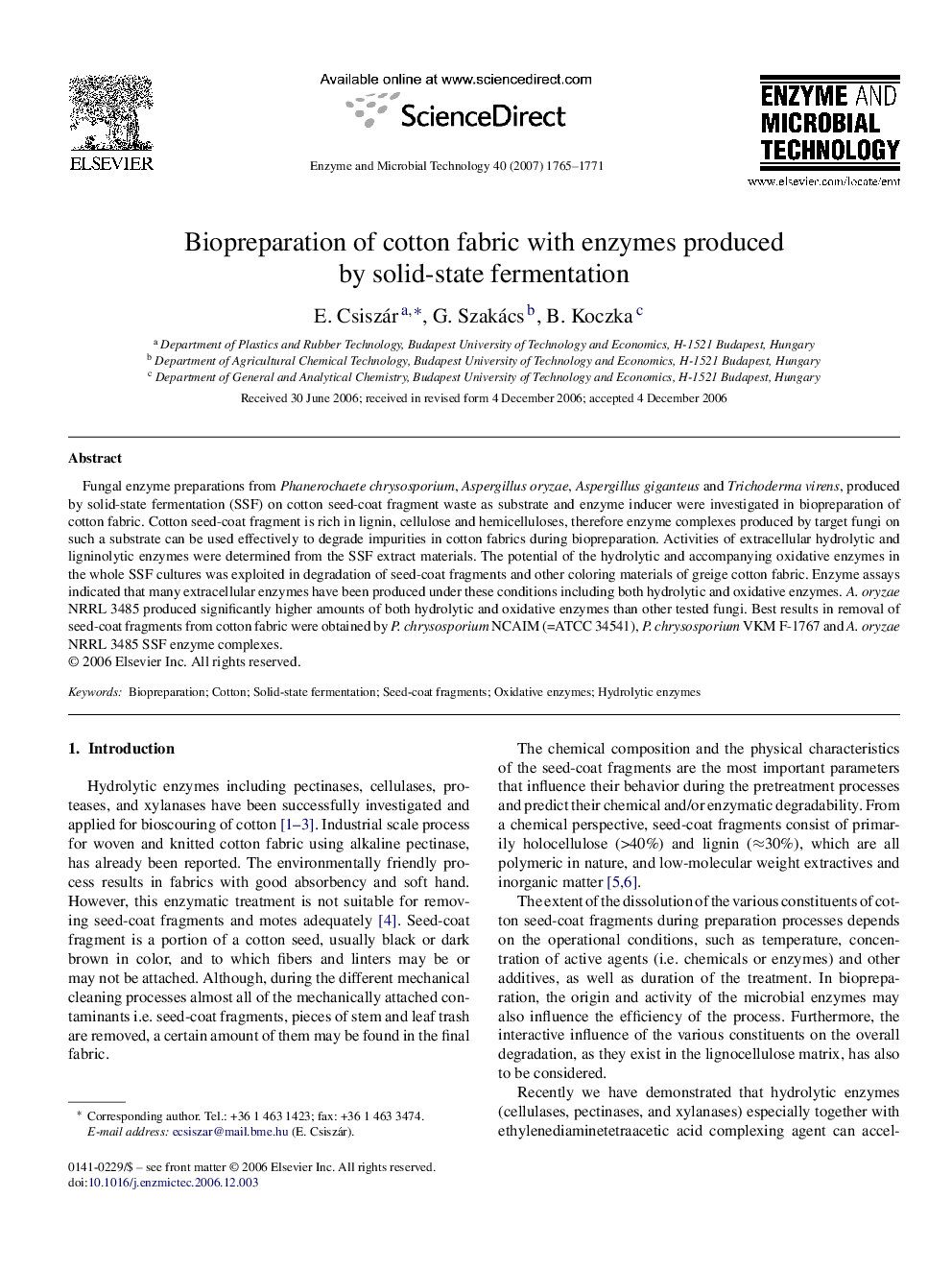| Article ID | Journal | Published Year | Pages | File Type |
|---|---|---|---|---|
| 18126 | Enzyme and Microbial Technology | 2007 | 7 Pages |
Fungal enzyme preparations from Phanerochaete chrysosporium, Aspergillus oryzae, Aspergillus giganteus and Trichoderma virens, produced by solid-state fermentation (SSF) on cotton seed-coat fragment waste as substrate and enzyme inducer were investigated in biopreparation of cotton fabric. Cotton seed-coat fragment is rich in lignin, cellulose and hemicelluloses, therefore enzyme complexes produced by target fungi on such a substrate can be used effectively to degrade impurities in cotton fabrics during biopreparation. Activities of extracellular hydrolytic and ligninolytic enzymes were determined from the SSF extract materials. The potential of the hydrolytic and accompanying oxidative enzymes in the whole SSF cultures was exploited in degradation of seed-coat fragments and other coloring materials of greige cotton fabric. Enzyme assays indicated that many extracellular enzymes have been produced under these conditions including both hydrolytic and oxidative enzymes. A. oryzae NRRL 3485 produced significantly higher amounts of both hydrolytic and oxidative enzymes than other tested fungi. Best results in removal of seed-coat fragments from cotton fabric were obtained by P. chrysosporium NCAIM (=ATCC 34541), P. chrysosporium VKM F-1767 and A. oryzae NRRL 3485 SSF enzyme complexes.
